
Basking Shark Basking shark, Largest shark, Shark photos
The basking shark ( Cetorhinus maximus) is the second-largest living shark and fish, [4] after the whale shark, and one of three plankton-eating shark species, along with the whale shark and megamouth shark. Typically, basking sharks reach 7.9 m (26 ft) in length.
The mouth of a basking shark oddlyterrifying
It is a gray-brown or blackish shark, with tiny teeth and very long gill slits. It feeds by opening its mouth wide to sift copepods and other zooplankton from the ocean, passing an average of 6,000 litres (nearly 2,000 gallons) of water through its gills per hour.

Basking Shark Wild Life World
The shark's mouth can open to about 3 feet wide (1 meter), and contains more teeth than any other shark; though these teeth are small, and hooked in shape. Interesting Facts about the Basking Shark The basking shark gets its name from the way it feeds, floating to the water's surface with the dorsal fin (the fin located along the fish's.

Does a Basking Shark Have Teeth? American Oceans
Due to their slow movement, docile nature, and lack of sharp teeth, basking sharks have long been a target of the fishing industry. However, its populations have dwindled considerably due to all the harvesting, and the shark is now considered Endangered. With a jaw that can be 3 feet wide, basking sharks may look intimidating.

Basking shark (Cetorhinus maximus) Natural History Museum
The teeth in the basking shark are very small and numerous and often number one hundred per row. The teeth themselves have a single conical cusp, are curved backwards and are the same on both the upper and lower jaws. Historically, Basking Sharks were abundant in many areas off the coast of British Columbia. As commercial fishing expanded in.
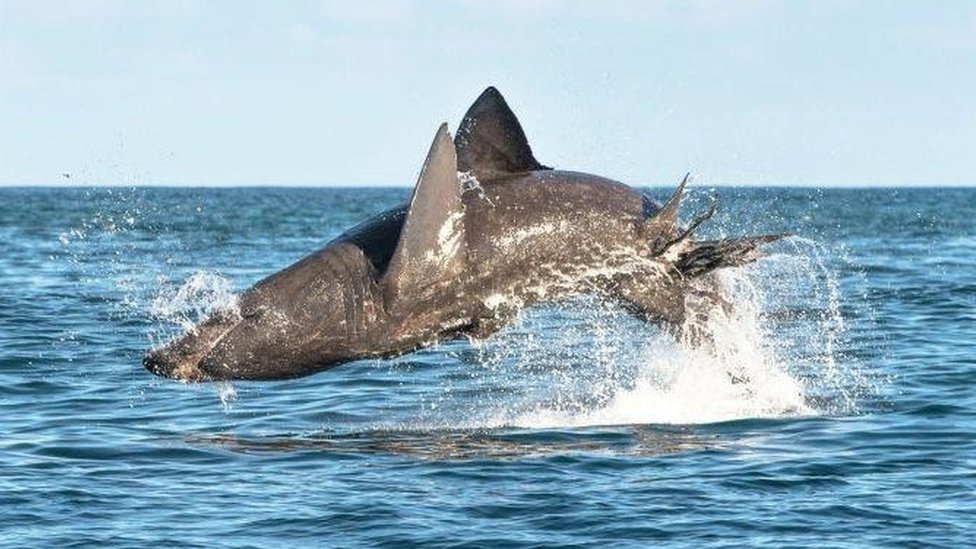
Basking shark spotted off Flamborough head BBC News
Basking sharks house approximately 1,500 tiny teeth in their colossal mouths. Their upper jaws have six rows of teeth while the bottom contains nine. They aren't needed when they suck in tiny zooplankton without chewing! 1 2. Their mouths can stretch almost 1 metre across

Calls for giant 40ft Basking Sharks to be given world's first protected area in Scotland The
pacific ocean native Habitat Basking sharks are a pelagic fish that inhabit a wide range of depths - from 200 to 2,000 m.
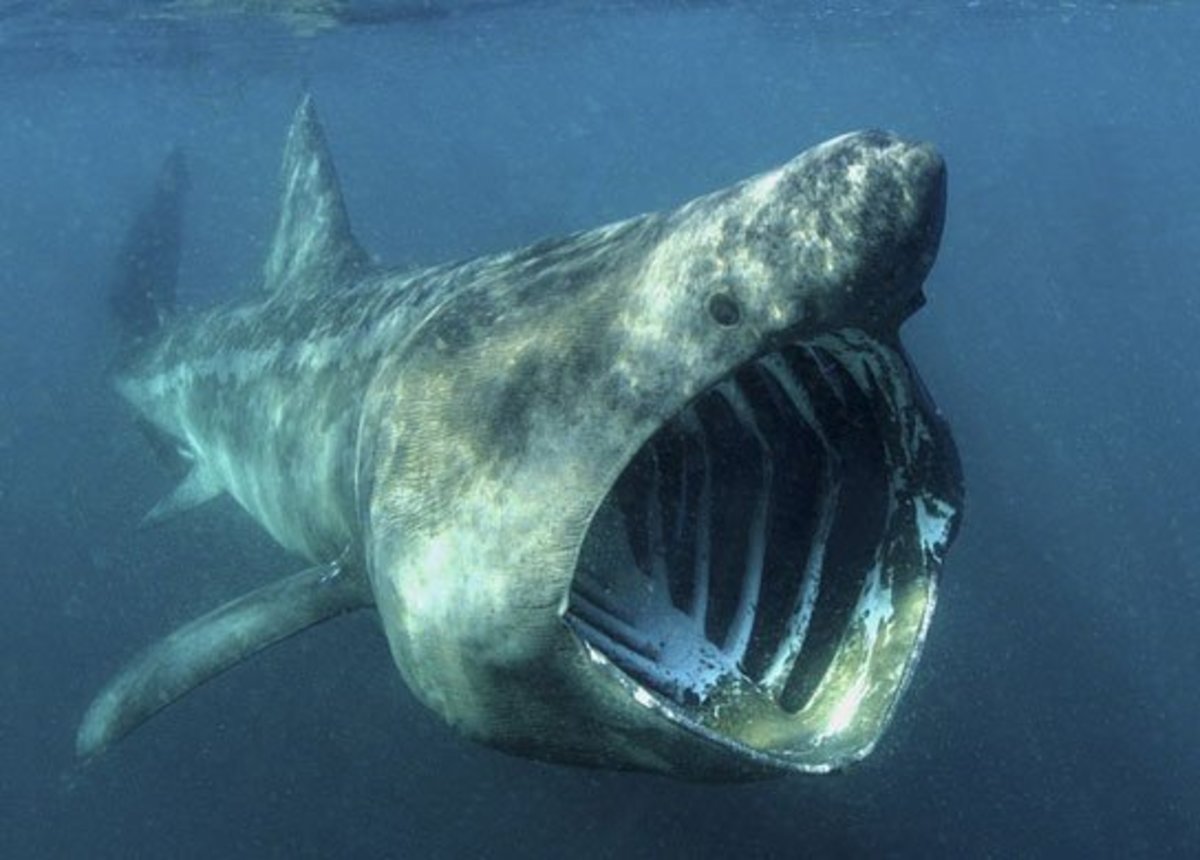
Facts About Basking Sharks Owlcation
Basking shark teeth are located in the gill arches, lining specialized structures called gill rakers in dense rows. They play a vital role in filter feeding. As huge volumes of water flow into the front of the mouth and out through the gills, the tiny hook-shaped teeth snag plankton, preventing food particles from exiting along with the water.

Basking Sharks Cornwall YouTube
It's a shark. But, it doesn't use teeth to eat. Yes, I'm serious. I'm writing about none other than the basking shark. These gentle giants are often overlooked, thanks to the popularity of great white sharks and whale sharks—who steal all the glory.

One way, two directions Shark That Swims With Its Mouth Wide Open
9 min read Shark teeth are fascinating and unique. They are not like human teeth at all. Sharks have a mouthful of sharp, serrated blades that they use to tear through the flesh of their prey. The five rows of these razor-sharp teeth may be utilized at any time. Some sharks may even eat while swimming by repeatedly opening and closing their jaws.
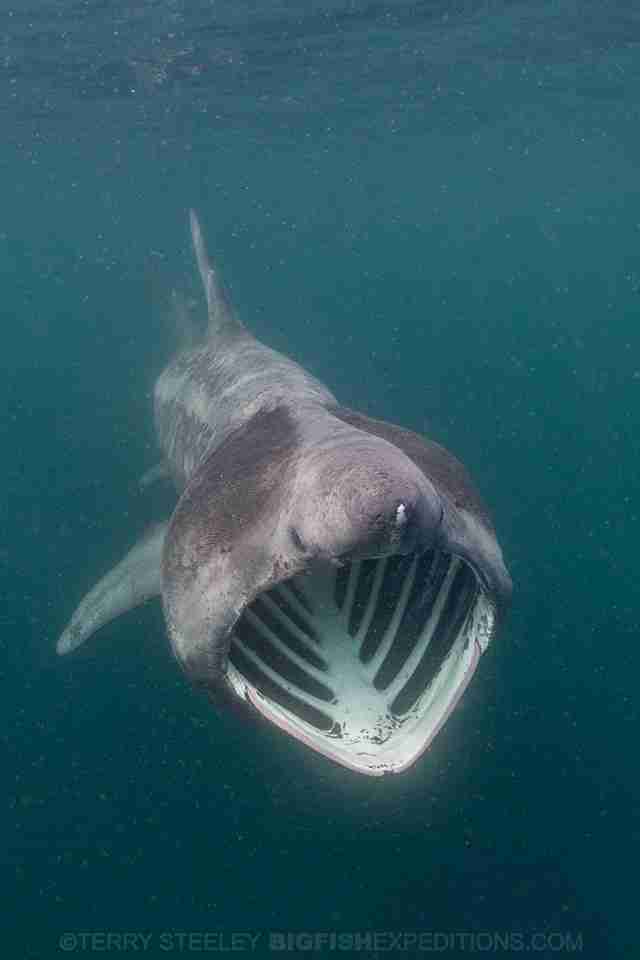
ScaryLooking Basking Sharks Are The Gentle Giants Of The Ocean The Dodo
Cetorhinus maximus This slow-moving migratory shark is the second largest fish, growing as long as 40 feet and weighing over 5 tons. It is often sighted swimming close to the surface, huge mouth open, filtering 2,000 tons of seawater per hour over its complicated gills to scoop up zooplankton.
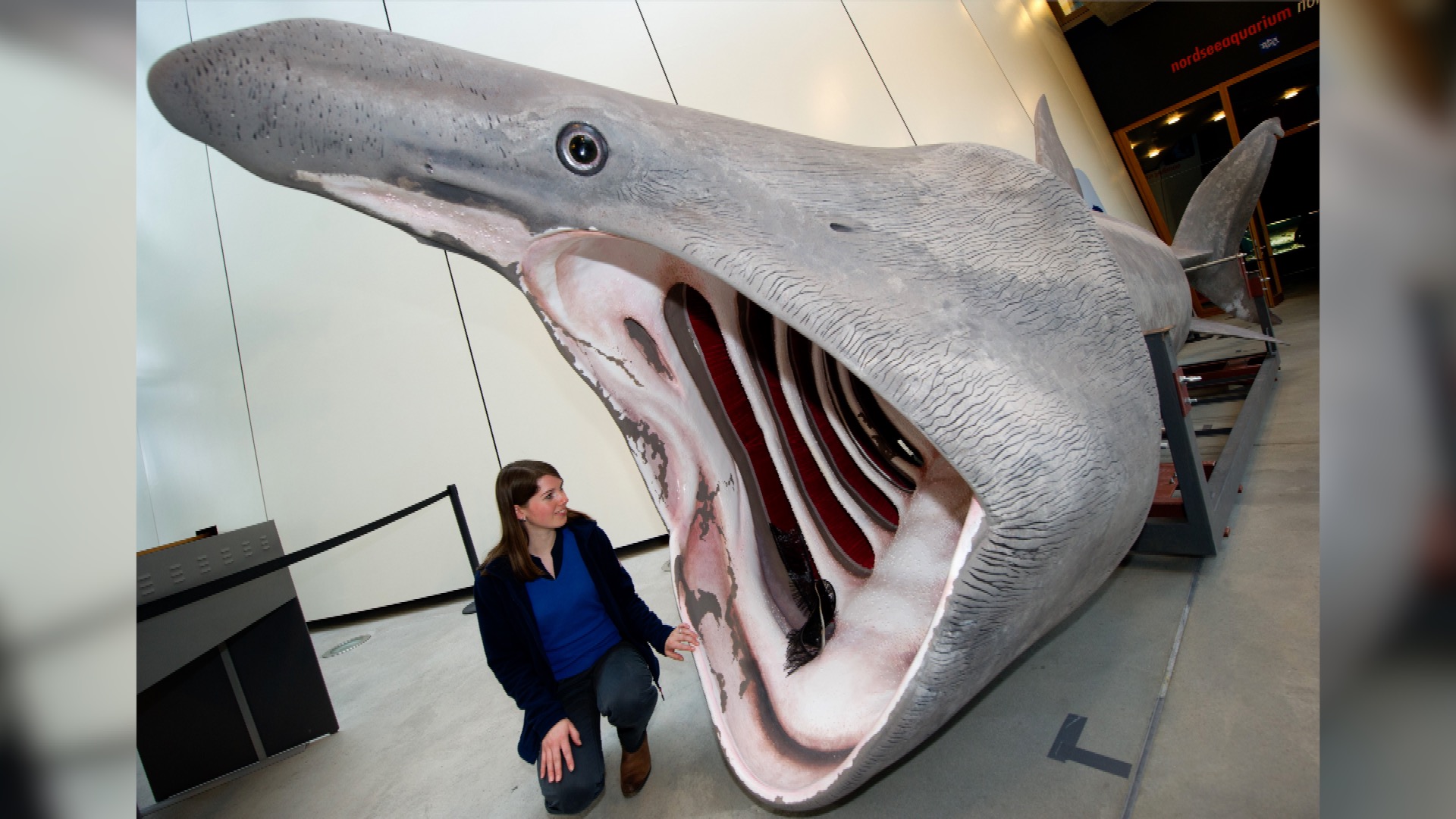
Video ‘SharkCam’ Captures Lives of Basking Sharks in Scottish Waters
Filter-feeding sharks include whale sharks, megamouth sharks and basking sharks. These species have teeth, but they are largely vestigial - meaning they once served a purpose but over time the animal has evolved to no longer rely on them. Non-functional teeth are often very small. Whale sharks have 300 rows of teeth that are less than six.

Real Monstrosities Basking Shark
Diet One of the things that we are sure of is their diet. Many people would assume that these gigantic sharks eat animals such as seals, other fish, or you know, whatever is in the vicinity. Well the truth of the matter is, thy have one main favorite food source: Zooplankton.
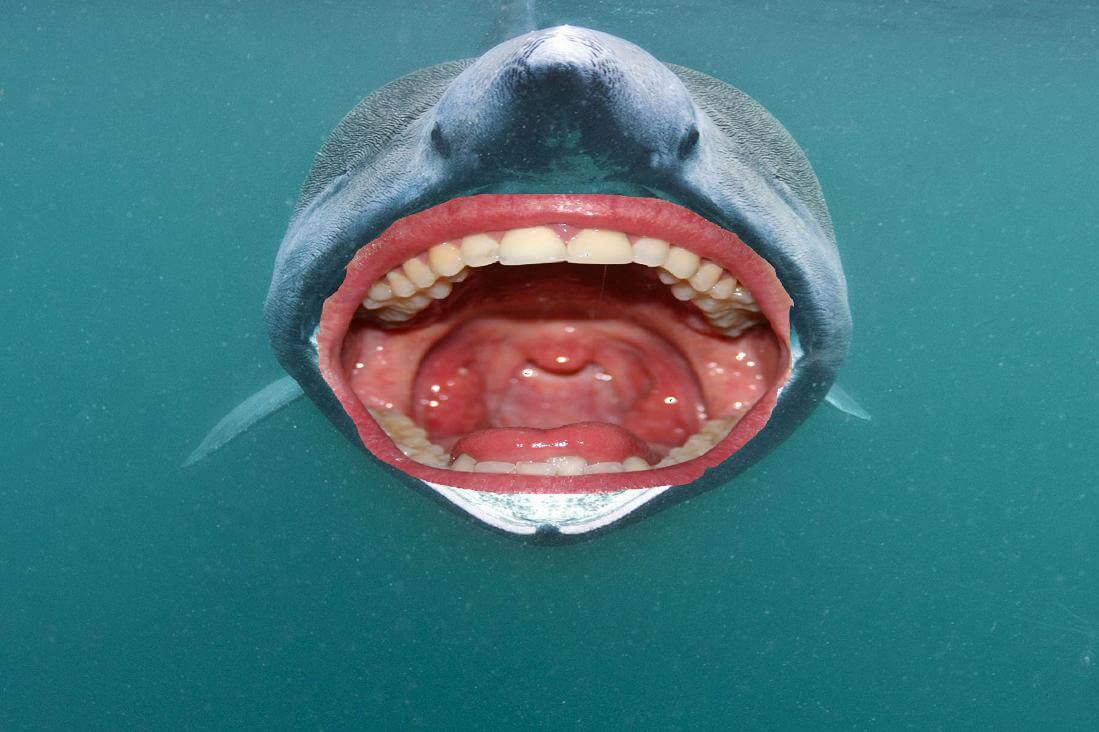
22 Shark With Human Teeth Pictures That Are Just Ridiculous
Basking shark Common Name: Basking sharks Scientific Name: Cetorhinus maximus Type: Fish Diet: Omnivore Group Name: School, shoal, shiver Average Life Span: Around 50 years Size: Up to 33.

A Basking Shark feeding (Cetorhinus maximus) [3262 x 2394]
A basking shark's teeth can measure in at about one-quarter of an inch long, almost microscopic. Basking sharks have six rows of these miniscule teeth lined along the inside of their upper jaw and nine rows along the inner layer of their lower jaw, with 1,500 teeth in total.

Basking Shark, Whale, Fish, Pets, Animals, Quick, Whales, Animales, Animaux
When you think of sharks, an animal with a mouth full of huge, razor-sharp teeth may come to mind.But for some of the world's largest species of sharks, this.